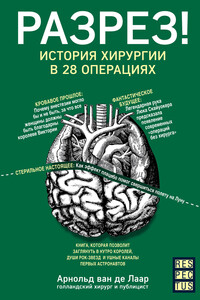(New York: Liveright).
15. Dupont (1999), p. 207.
16. Baumeister, A. (2011), Journal of the History of the Neurosciences 20:106–22.
17. Frank (2018), p. 251.
18. Kety, S. (1959), Science 129:1528–32, 1590–96.
19. Там же, p. 1593.
20. Впервые это слово фигурирует в неподписанной рецензии: The Lancet, 2 September 1961, p. 530, где оно употреблено в качестве прилагательного.
21. Carlsson, A. (2001), Science 294:1021, p. 1021.
22. Burgen, A. (1964), Nature 204:412.
23. В 1998 году Роберт Ферчготт, Луис Игнарро и Ферид Мурад получили Нобелевскую премию за выяснение роли оксида азота.
24. Snyder, S. (2018), in D. Linden (ed.), Think Tank: Forty Neuroscientists Explore the Biological Roots of Human Experience (London: Yale University Press), pp. 88–93.
25. Dupont (1999), p. 227.
26. Zhu, S., et al. (2018), Nature 559:67–72.
27. Leng, G. (2018), The Heart of the Brain: The Hypothalamus and Its Hormones (London: MIT Press).
28. Там же.
29. Pert, C. and Snyder, S. (1973), Science 179:1011–14.
30. Hughes, J., et al. (1975), Nature 258:577–80.
31. Simantov, R. and Snyder, S. (1976), Proceedings of the National Academy of Sciences USA 73:2515–19.
32. Pollin, W. (1979), Science 204:8; Snyder, S. (2017), Annual Review of Pharmacology and Toxicology 57:1–11.
33. Jones, E. and Mendell, L. (1999), Science 284:739.
34. Vander Weele, C., et al. (2018), Nature 563:397–401.
35. Salinas-Hernandez, X., et al. (2018), eLife 7:e38818; Mohebi, A., et al. (2019), Nature 570:65–70.
36. Handler, A., et al. (2019), Cell 178:60–75.
37. Leshner, A. (1997), Science 278:45–7.
38. Nutt, D., et al. (2015), Nature Reviews Neurosciences 16:305–12.
39. Luscher, C. and Malenka, R. (2011), Neuron 69:650–63; Sulzer, D. (2011), Neuron 69:628–49.
40. Volkow, N., et al. (2016), New England Journal of Medicine 374:363–71.
41. Observer, 4 March 2018.
42. Koepp, M., et al. (1998), Nature 393:266–8.
43. Kirk, S. and Kutchins, H. (1992), The Selling of DSM: The Rhetoric of Science in Psychiatry (New York: Aldine de Gruyter); Decker, H. (2013), The Making of DSM-III. A Diagnostic Manual’s Conquest of American Psychiatry (New York: Oxford University Press); Stein, D., et al. (2010), Psychological Medicine 40:1759–65.
44. Andrews, P., et al. (2015), Neuroscience and Biobehavioral Reviews 51:164–88.
45. Howard, D., et al. (2019), Nature Neuroscience 22:343–52, p. 350.
46. Gotsche, P. (2014), The Lancet Psychiatry 1:104–6; Nutt, D., et al. (2014), The Lancet Psychiatry 1:102–4.
47. Такова была цель Макграта, C., et al. (2013), JAMA Psychiatry 70:821–9.
48. Schildkraut, J. (1965), American Journal of Psychiatry 122:509–22; Coppen, A. (1967), British Journal of Psychiatry 113:1237–64, p. 1258.
49. Mendels, J. and Frazer, A. (1974), Archives of General Psychiatry 30:447–51.
50. Van Praag, H. and de Haan, S. (1979), Psychiatry Research 1:219–24.
51. Самая ранняя ссылка, которую я нашел на эту фразу: Lurie, S. (1991), American Journal of Psychotherapy 45:348–58. France, C., et al. (2007), Professional Psychology: Research and Practice 38:411–20. В данной статье авторы обещают добраться до истоков идеи, но не доходят до 1991 года. Эта фраза вскоре проникла в массовую культуру. В 1992 году в 4-й серии 6-го сезона ситкома «Сайнфелд» Джерри Сайнфелд говорит о другом персонаже: «Он не сумасшедший, у него химический дисбаланс».
52. Leo, J. and Lacasse, J. (2008), Society 45:35–45. О том, как психиатрия восприняла эту идею, и о том, как ведущие психиатры отреагировали на нее, см. Lacasse, J. and Leo, J. (2015), The Behavior Therapist 38:206–13, Pies, R. (2015), The Behavior Therapist 38:260–2, and Carlat, D. (2015), The Behavior Therapist 38:262–3. Лакасс и Лео реагируют на ответы на с. 263–266; Пирогов продолжает решительно утверждать, что психиатры никогда по-настоящему не принимали эту теорию: https://tinyurl.com/imbalance-myth.
53. Fibiger, H. (2012), Schizophrenia Bulletin 38:649–50.
54. Rose, N. (2019), Our Psychiatric Future: The Politics of Mental Health (Cambridge: Polity).
55. De Kovel, C. and Francks, C. (2019), Scientific Reports







